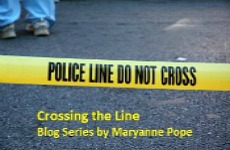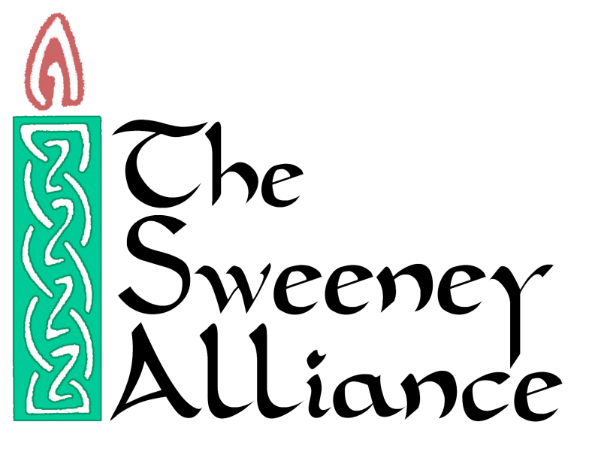|
 |
I would like to extend my heartfelt thanks to each person who gave of themselves and shared an article, or several, over the past year. The success of the Grieving Behind the Newsletter and blog is due to your efforts.
Have you noticed the change in the focus of the articles? In the past, the stories were about all aspects of emergency responder life. Recently, the articles target depression, PTSD and addiction on a recurring basis.
Please continue to share your stories. The need to be heard by management is paramount. YOU are the voice! Speak out for those who cannot, for fear of reprisal. Shout it from the rooftops that CHANGE must happen. No one should stand alone to face the demons and the nightmares.

Stay safe and HUGS,
Peggy Sweeney, Editor
830.377.7389
|
|
Don't Keep This Newsletter a Secret
|
Click to forward this newsletter to a friend
|
| |
|
|
Haunting the Holidays
by Kelly Clark-Bentley
|
What do family gatherings, turkey and ham, pies and cookies, shopping,  endless commercials of holiday events and cheer and the ever so popular Hallmark Channel specials all have in common? If you said "the holidays" you would be right. But what happens when your view of the hustle and bustle is not that of a Hallmark movie, but instead a horror film that you play over and over in your mind. What happens when you are faced with the overwhelming feeling of having to put the mask on, smile for the family, spend an overabundance of money and eat an abundance of pumpkin pie, when all you really want to do is lock yourself in your room and try to stop the slide show full of holiday tragedies that is playing in that ever dreaded auto repeat mode. endless commercials of holiday events and cheer and the ever so popular Hallmark Channel specials all have in common? If you said "the holidays" you would be right. But what happens when your view of the hustle and bustle is not that of a Hallmark movie, but instead a horror film that you play over and over in your mind. What happens when you are faced with the overwhelming feeling of having to put the mask on, smile for the family, spend an overabundance of money and eat an abundance of pumpkin pie, when all you really want to do is lock yourself in your room and try to stop the slide show full of holiday tragedies that is playing in that ever dreaded auto repeat mode.
Read More »
|
| |
|
|
You Don't Know Me
by Ross Beckley
|
TRIGGER WARNING - some readers may find this disturbing
You don't know me. Yet I stood by you through one of the most horrific times  of your life. I stood in the freezing cold all night surrounded by a public screen to ensure no-one else had to see the carnage. I heard the screams of a mother as she arrived and was told she would never see her child alive again. Screams of unimaginable grief and disbelief that continue to echo in my dreams. I spent 8 hours making small talk while my crew and I patiently waited for investigations to take place. I kept everyone calm, organized crews, shared information with other first responders, helped the guy who came to pick up the bodies and the towie who removed the cars. of your life. I stood in the freezing cold all night surrounded by a public screen to ensure no-one else had to see the carnage. I heard the screams of a mother as she arrived and was told she would never see her child alive again. Screams of unimaginable grief and disbelief that continue to echo in my dreams. I spent 8 hours making small talk while my crew and I patiently waited for investigations to take place. I kept everyone calm, organized crews, shared information with other first responders, helped the guy who came to pick up the bodies and the towie who removed the cars.
You don't know me. You are my friend, my cousin, my aunt.
Read More »
|
| |
|
|
The Ripple Effect of First Responder Stress - Anger in Relationships
by Veronique Moseley
|
Please read the whole post. Often relationship issues are discussed by one  partner only, this is from BOTH Ross Beckley and I reflecting on the tough times. We suggest you watch the two-minute film clip we created a few years ago, then read the story. partner only, this is from BOTH Ross Beckley and I reflecting on the tough times. We suggest you watch the two-minute film clip we created a few years ago, then read the story.
Keep in mind that when we made the clip it was a pivotal time in Ross's recovery. He was somewhere between denial, and acceptance of his post traumatic stress disorder. He had some incredibly insightful moments during this period.
Read More »
|
| |
|
|
Crossing the Line
Blog Series by Maryanne Pope
 When Maryanne Pope's husband, Constable John Petropoulos, died in the line of duty in 2000 as the result of a preventable fall at an unsafe workplace, Maryanne went into a freefall of her own into grief and depression - and a determination to ensure positive change came from tragedy. Crossing the Line is a blog series about Maryanne's experience of coming to terms with her husband's death and working with the John Petropoulos Memorial Fund to help create a culture of safer workplaces for everyone, including emergency responders. Though Maryanne's professional commitment has been as an advocate for the physical safety of first responders, much of her writing and public speaking has been about the emotional, psychological and spiritual impacts of learning to accept the unacceptable and transform hurt into hope. Seventh in the series:
In the Line of Duty
|
 |
 |
|
Secondary PTSD
by Bob Rabe
|

Every critical incident has similarities, and everyone is different. Every law enforcement officer's reaction is individual to them as well. Some officers go through the process of integrating the experience into their psyche without difficulty. Usually this is with the help of others (peer group counseling, debriefings). It is difficult to do it alone.
But what can the family possibly do to help the officer? The family can make sure that nothing is missed, especially if medication is needed. But sometimes medication or even intervention isn't good enough. Needless to say, if the officer has become sullen and melancholy, they are a different person than before the critical incident and onset of PTSD. At this point, the family becomes the secondary victim, and loyalty is tested. The spouse and the children can suffer from secondary PTSD, which is not widely discussed in the mainstream media.
Read More»
|
| |
|
|
November is Movember for PTSD
by Robert Cubby
|

Over the last few years, after I retired from the Jersey City Police Department, I decided that I needed a change of lifestyle, or daily habits, or routines. I'm retired, why should I adhere to the same rigid schedule I suffered through in law enforcement? No more shoe shines or pressed uniforms. No, that wasn't enough. Then it came to me, no more haircuts. Or shaves. My guess is that I wanted to distance myself somehow from what brought me painful memories and triggered to my PTSD. If I could change something, anything that brought back those memories, I was willing to try.
One thing was certain about my decision. As much as I always looked like a cop, even off duty when I was active duty, there was no way anyone would ask me "are you a cop?" I hated that. I couldn't be off or relaxed even off duty or on my days off. I could never get away from it. Even my appearance screamed law enforcement. So we'll start there.
Read More »
|
| |
|
|
One Day of Addiction
by Jason Willard
|
Waking up as an addict is much like waking up as a "normal" person, but only  for a brief second. I wake up and see my beautiful wife next to me. With a good morning kiss on her cheek, I immediately start thinking of getting high. I feel a rush of anxiety. Do I have a wake up hit? Where did I hide it? for a brief second. I wake up and see my beautiful wife next to me. With a good morning kiss on her cheek, I immediately start thinking of getting high. I feel a rush of anxiety. Do I have a wake up hit? Where did I hide it?
A number of things run through my head, and I start to sweat. I feel sick. As I run through my options of how to get money to get high, I start to panic. The torture begins. All the guilt that I carry every day is on my mind, in my body, causing me pain. I need money!
Read More »
|
| |
|
 Police Suicide: Tactics for Prevention Police Suicide: Tactics for Prevention
by Dell P. Hackett and John M. Violanti
This book provides information on dealing with law enforcement officers in crisis. Depression, substance abuse, domestic abuse, and suicide can be a part of law enforcement. Most of those individuals completing suicide often communicate their suicidal intent to someone. A successful intervention, by those trained in suicide prevention/intervention skills, can save lives.
 Force Under Pressure: How Cops Live and Why They Die Force Under Pressure: How Cops Live and Why They Die
by Laurence Blum
Lawrence Blum describes the sources of danger, injuries, and victory to police officers in a down-to-earth, readable style. Blum's main point is that there are missing "ingredients" in the training and socialization of police officers. In his book, these ingredients include techniques and tools to condition the officer's decision-making and concentration during conditions of emergency; internal controls necessary to maintain the will to survive; and aids that will prevent officers being defeated by any threat. Blum offers tools to help police officers cope with unanticipated or rapidly changing encounters.

Deadly Force Encounters: What Cops Need To Know To Mentally And Physically Prepare For And Survive A Gunfight
by Loren W. Christensen
In a cop's world it's kill or be killed, but the truth of the matter is that a shooting's aftermath is often the most dangerous time for the cop. This unique life- and career-saving manual contains every shred of critical information the police officer needs to survive the media, investigations and more.
Visit our online booklist resource page here
|
| |
|
 The Sweeney Alliance, a Texas-based 501(c)(3) corporation, has been a leader in educational resources addressing the emotional needs of families and emergency responders since 1992. In the last 2+ years, we have published over 385 articles on loss and grief, post traumatic stress and other "hot topics". All newsletters are free of charge for our subscribers. Your donation today will help us continue as a FREE publication. Thank you! |
|
|
|
|
|
 |
|
|